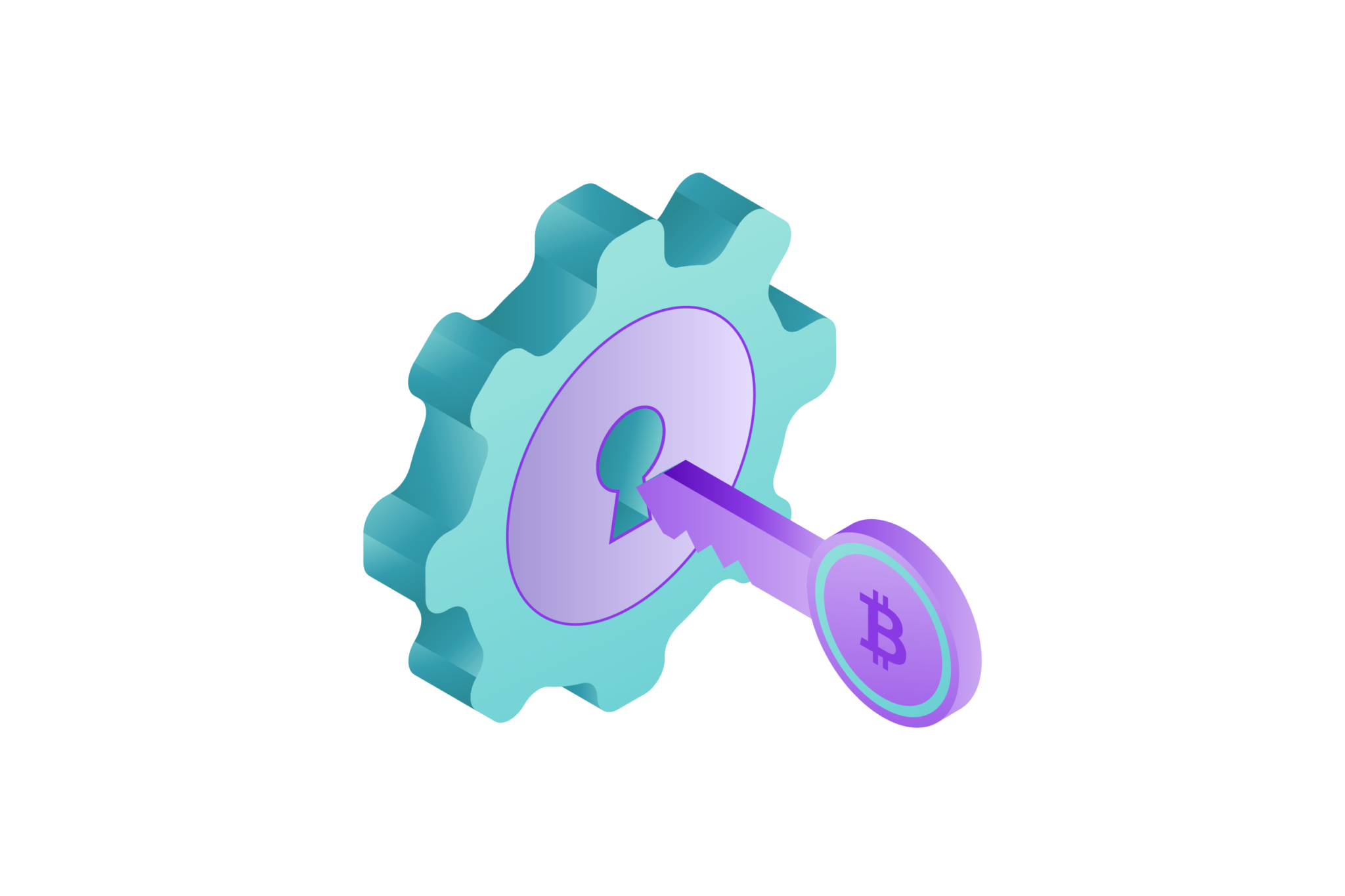
There exists a crucial and often overlooked player—an entity or an individual—that serves an important role for the entire system’s functionality. This indispensable entity is none other than the market maker. Market makers are the unsung heroes of financial markets, silently but significantly influencing the dynamics of trading, asset pricing, and overall market stability.
However, no exploration of market makers would be complete without a closer examination of the challenges and controversies that often surround them. From who are they and what are their challenges and controversies, this comprehensive analysis will give more information about them, allowing readers to know more about the role and impact of market makers in today’s financial markets.
Who Are Market Makers?

Market makers are financial entities or individuals that play a central role in the functioning of financial markets, particularly in stock exchanges and other securities markets. Their primary function is to facilitate the buying and selling of assets by providing liquidity, stability, and efficiency to the market.
In essence, market makers act as intermediaries between buyers and sellers, bridging the gap between supply and demand for various financial instruments, such as stocks, bonds, options, and currencies. Here’s a more detailed explanation of what market makers do and how they operate:
- Liquidity Providers
Market makers continuously quote both buy (bid) and sell (ask) prices for specific assets. These quotes are known as the bid-ask spread. By doing so, they ensure that there is always a readily available market for those assets. This liquidity provision is vital for traders and investors because it allows them to buy or sell assets quickly without waiting for a counterparty to show interest.
- Price Stabilization
Market makers help stabilize asset prices by absorbing excess supply or demand. When there is an imbalance in buying and selling orders, market makers step in to either buy or sell the asset, depending on the prevailing market conditions. This stabilizes prices and prevents sudden and extreme price fluctuations.
- Efficient Execution
Market makers facilitate efficient and timely execution of trades. Without them, it would be challenging for large orders to be executed without significantly impacting the asset’s price. Market makers break down large orders into smaller trades and execute them at prices that are as close as possible to prevailing market rates.
Also Read: Market Making: Strategies and Techniques (August 2023)
- Risk Management
Market makers take on significant risk in their role. They must manage the inventory of assets they hold, which can be subject to market price fluctuations. To mitigate this risk, market makers employ sophisticated trading strategies, algorithms, and risk management techniques to ensure their operations remain profitable.
- Competitive Spreads
Market makers compete with each other to offer the best bid-ask spreads. A narrower spread benefits traders and investors because it reduces the cost of entering or exiting a position. Market competition helps maintain fair pricing in the market.
- Regulatory Oversight
In most financial markets, market makers are subject to regulatory oversight to ensure fair and transparent trading practices. Regulators impose rules and standards to prevent market manipulation and ensure market makers act in the best interest of market participants.
- Role in Initial Public Offerings (IPOs)
Market makers often play a crucial role in IPOs, where they underwrite and distribute shares to the public. They help set the initial offering price and provide stability to the stock’s price during the early days of trading.
Market makers are essential components of financial markets, providing the necessary liquidity and efficiency for trading to occur smoothly. They help maintain order and stability in markets and serve as key players in ensuring that investors and traders can buy and sell assets with ease and confidence.
Key Functions of Market Makers

Market makers serve several key functions in financial markets to ensure their smooth operation and facilitate trading activities. These functions are pivotal in maintaining liquidity, stabilizing prices, and promoting efficient trading. Here are the key functions of market makers:
- Providing Liquidity
Perhaps the most fundamental role of market makers is to provide liquidity to the market. They do this by continuously offering to buy and sell specific financial instruments, such as stocks or options, at quoted bid and ask prices. This constant presence ensures that there are willing buyers and sellers in the market at any given time, making it easier for traders and investors to execute their orders promptly.
- Maintaining Orderly Markets
Market makers help maintain order and prevent disorderly price fluctuations. When there is an imbalance between buy and sell orders, market makers step in to absorb excess supply or demand. This prevents abrupt and extreme price swings, ensuring that markets remain orderly and stable.
- Setting Bid-Ask Spreads
Market makers establish bid and ask prices for assets, effectively determining the bid-ask spread. The spread represents the profit margin for market makers and provides a clear reference for traders to assess the cost of entering or exiting a trade. Competitive market makers strive to offer narrower spreads, benefiting market participants with tighter trading costs.
- Executing Large Orders
Market makers specialize in handling large trading orders. When institutional investors or traders want to buy or sell a significant quantity of assets, market makers can break down these large orders into smaller, manageable trades. This process allows for the efficient execution of substantial positions without causing significant price disruptions.
- Risk Management
Market makers manage the risk associated with their positions. They hold inventories of assets, which can be subject to market price fluctuations. To mitigate this risk, market makers employ advanced trading strategies and risk management techniques. They continuously monitor their positions and adjust their bids and offers as market conditions change.
Why Market Makers Are Essential

Beyond their role in enhancing liquidity, market makers serve as essential pillars underpinning the functionality and efficiency of financial markets. Their multifaceted contributions extend to a range of critical aspects, solidifying their irreplaceable position within the financial ecosystem.
1. Price Stability
One of the paramount functions of market makers is their ability to maintain stability in asset prices. In turbulent times or when there’s a sudden surge in demand or supply, market makers step in to act as stabilizers. By absorbing excess supply or demand, they prevent abrupt and extreme price swings that could otherwise unsettle investors and undermine market integrity. This stability fosters investor confidence, ensuring that markets remain predictable and conducive to long-term investment strategies rather than driven by irrational exuberance or panic selling.
2. Efficient Execution
Market makers are experts in the art of efficient trade execution. Their proficiency becomes particularly evident when handling large and complex orders. Institutional investors and traders, whose portfolios involve significant sums, rely on market makers to fragment these substantial orders into smaller, more manageable trades. This process ensures that large positions can be discreetly and efficiently executed in the market without causing disruptive price movements that might otherwise erode the quality of execution.
3. Narrower Bid-Ask Spreads
The competitive nature of the market maker landscape serves as a boon to traders and investors. This competition incentivizes market makers to continually tighten bid-ask spreads, the price differential between buying and selling an asset. As spreads narrow, transaction costs decrease, providing cost savings for market participants. Consequently, investors enjoy more favorable pricing when entering or exiting positions, enhancing their overall returns.
4. Support for Initial Public Offerings (IPOs)
Market makers are instrumental in fostering capital market growth and innovation by supporting companies in their transition to the public domain. During initial public offerings (IPOs), market makers serve as underwriters, assisting companies in setting the initial offering price and facilitating the distribution of shares to the investing public. Their involvement instills investor confidence, ensuring a smoother and more successful transition for firms seeking to raise capital through the equity market. This, in turn, promotes economic growth, job creation, and investment opportunities for the broader population.
Also Read: Market Maker Options: Definition and How They Make Money
5. Risk Management
Market makers, often operating on razor-thin profit margins, are not immune to the inherent risks of financial markets. Their operations involve maintaining inventories of assets that can be exposed to market price fluctuations. Effective risk management is the linchpin of their stability. Market makers employ sophisticated strategies, often backed by cutting-edge technology, to balance their portfolios and mitigate potential losses. By acting as shock absorbers against extreme price swings, they perform a critical function in preventing market crashes and panics. Their ability to calmly navigate tumultuous market conditions not only safeguards their own financial health but also contributes to overall market resilience.
6. Price Discovery
Market makers are active participants in the complex dance of price discovery. Through the continuous quoting of bid and ask prices, they provide valuable information to the market. These quotes reflect the ever-changing supply and demand dynamics for a specific asset, thereby offering insights into its fair market value. This transparency enhances the ability of all market participants to make informed decisions. Whether it’s individual investors gauging the attractiveness of an asset or institutional traders executing complex strategies, the price discovery process facilitated by market makers serves as a compass, guiding participants through the labyrinth of financial markets.
Market makers are not just liquidity providers; they play an important role in markets’ stability, resilience, and efficiency. Their diverse roles, encompassing price stabilization, efficient trade execution, competitive pricing, and support for IPOs, collectively contribute to the robustness of financial ecosystems worldwide. Recognizing their pivotal contributions underscores the importance of sustaining a well-regulated and balanced market landscape to ensure the continued growth and vitality of financial markets.
Challenges and Controversies Surrounding Market Makers

While market makers play a crucial role in maintaining market stability and liquidity, their activities are not without challenges and controversies. Several issues and debates surround their operations in the financial markets:
- Conflict of Interest
Market makers face a potential conflict of interest in their dual role as intermediaries and traders. As they provide liquidity and facilitate trades, they also engage in proprietary trading to generate profits for themselves. This duality raises concerns about whether their actions always align with the best interests of market participants.
- Market Manipulation Accusations
Market makers sometimes face accusations of market manipulation. Critics argue that their substantial influence on prices could be exploited to manipulate markets for their benefit. Regulatory authorities closely monitor market makers to ensure that their activities are in compliance with laws and regulations.
- Information Asymmetry
Market makers often have access to a vast amount of information, including order flow data. This information advantage can potentially lead to an information asymmetry between market makers and other market participants. This imbalance can be exploited for profit and may raise questions about fairness in the market.
- High-Frequency Trading (HFT) Concerns
Many market makers engage in high-frequency trading, which involves executing a large number of orders at extremely high speeds. Critics argue that HFT can create market instability, amplify volatility, and potentially lead to “flash crashes.” Regulators seek to strike a balance between the benefits of liquidity provision and the risks associated with rapid, algorithmic trading.
- Market Impact of Withdrawal
Market makers might reduce their activity or withdraw from the market during times of extreme volatility or uncertainty. This withdrawal can exacerbate market dislocation and reduce liquidity when it is needed the most, potentially leading to a self-reinforcing cycle of market stress.
- Systemic Risk
The interconnected nature of financial markets means that the failure of a major market maker could have systemic implications. In times of crisis, the withdrawal or failure of a significant market maker could lead to a cascade effect, affecting other market participants and potentially triggering broader financial instability.
While market makers play a critical role in the functioning of financial markets, the challenges and controversies surrounding their activities highlight the need for vigilant oversight and ongoing efforts to address potential risks. Balancing the benefits of liquidity provision with concerns about market manipulation, information asymmetry, and systemic risk remains a complex task for regulators and market participants alike.
Conclusion
Market makers are the unsung heroes of financial markets, serving as the bedrock of liquidity, stability, and efficiency. Their indispensable role in ensuring that buyers and sellers can transact seamlessly cannot be overstated. However, their functions come with challenges and controversies, including concerns about conflicts of interest, market manipulation, and information asymmetry.
Nevertheless, it is important to recognize that market makers, when properly regulated and monitored, play a vital role in supporting economic growth, facilitating investment, and maintaining the integrity of financial markets. As financial ecosystems evolve and technology continues to transform trading, addressing these challenges and controversies will remain an ongoing endeavor, aimed at striking a delicate balance between market efficiency and safeguarding the interests of all market participants.
Disclaimer: The information provided by Quant Matter in this article is intended for general informational purposes and does not reflect the company’s opinion. It is not intended as investment advice or a recommendation. Readers are strongly advised to conduct their own thorough research and consult with a qualified financial advisor before making any financial decisions.
I craft stories that make complex ideas clear. I simplify the blend of data science, machine learning, and crypto trading, showcasing how advanced tech and quantitative models analyze data for informed trading choices. Join me in exploring the realm of quantitative trading, where my narratives make intricate concepts easy to grasp.
-
Alifia Berizkyhttps://quantmatter.com/author/alifia-berizky/
-
Alifia Berizkyhttps://quantmatter.com/author/alifia-berizky/
-
Alifia Berizkyhttps://quantmatter.com/author/alifia-berizky/
-
Alifia Berizkyhttps://quantmatter.com/author/alifia-berizky/

